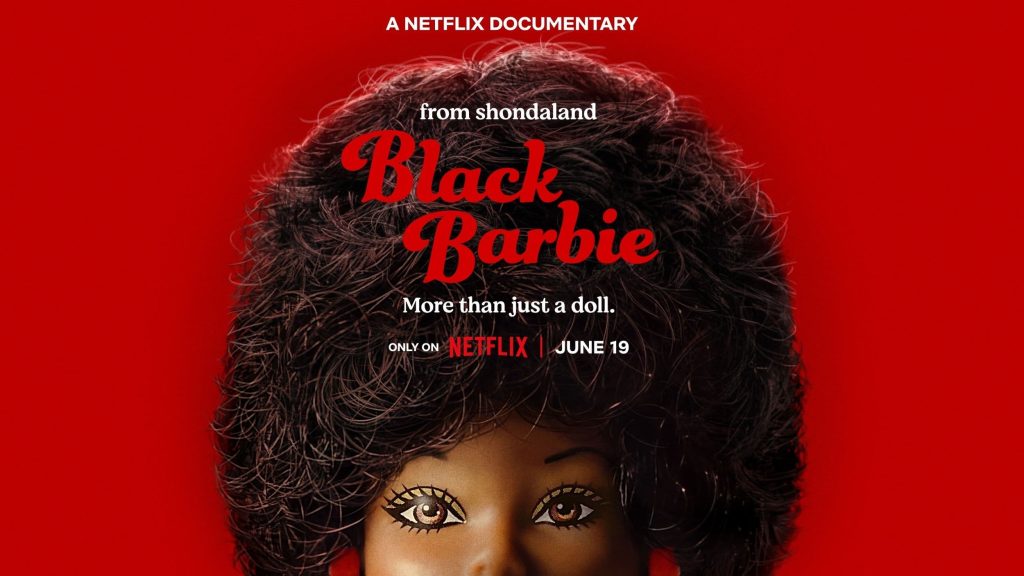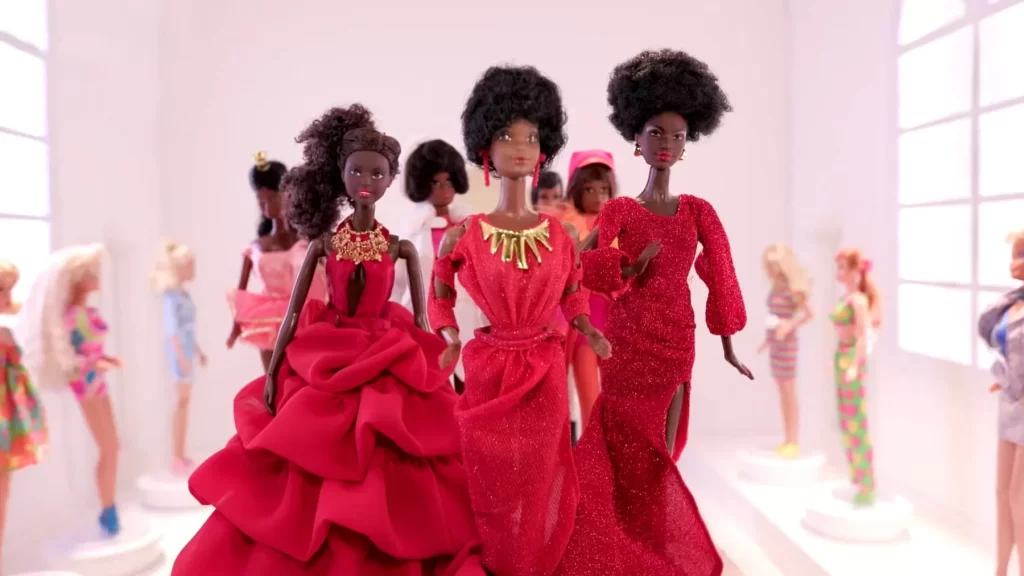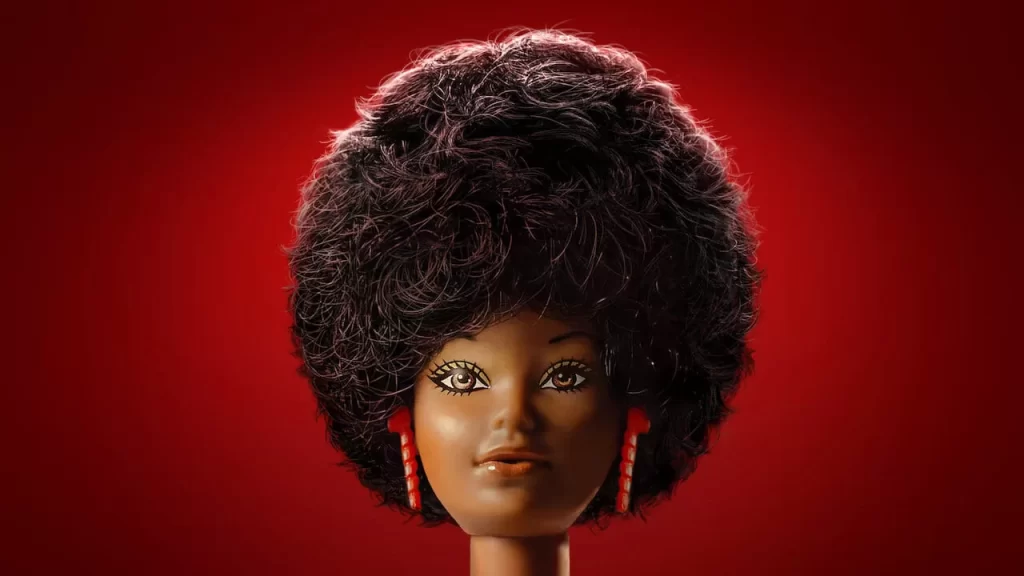A Documentary”: Unveiling the Evolution of Representation in the Doll World
“Black Barbie” (2024) is a documentary directed by Lagueria Davis that delves into the history and impact of the first Black Barbie doll, which debuted in 1980. The reviews film explores themes of representation, identity, and the cultural significance of Black Barbie through interviews with key figures involved in its creation and those influenced by it. The documentary has been praised for its comprehensive and thought-provoking approach, making it a significant piece of cultural commentary.




Since Barbie’s debut in 1959, she has been the quintessential doll for little girls worldwide. However, the concept of a Black Barbie was not even entertained until Beulah Mae Mitchell, one of Mattel’s first Black employees and a friend of Barbie creators Ruth and Evan Handler, suggested creating a version that reflected her community.
Mitchell’s unique position at Mattel paved the way for this groundbreaking documentary that delves into how marketing and merchandising intersect with racial representation. “Black Barbie” illustrates the struggles and triumphs of Black women in ensuring their voices and images were no longer invisible in the toy world or beyond.
The film is structured into three chapters, each exploring different facets of this journey. Until the mid-twentieth century, Black dolls were often relegated to dehumanizing stereotypes, such as calico, Aunt Jemima, jar dolls, or topsy-turvy dolls. These exaggerated, racist representations made many Black girls feel unaccepted and unworthy. As Shonda Rhimes poignantly states in the film, “…there is real damage done when you force children of color to play with white dolls.”
The tide began to turn when Mattel partnered with Lou Smith and Operation Bootstrap to create Shindana, a company that became the largest manufacturer of black dolls until 1983. However, the real breakthrough came when Kitty Black Perkins joined Mattel as a fashion designer. Inspired by Diana Ross, Perkins created the first black Barbie, transforming the industry with her innovative designs. Following in her footsteps, Stacy McBride-Irby celebrated the 30th anniversary of Black Barbie by creating dolls that reflected diverse real-life heroines, including Misty Copeland and Olympian Ibtihaj Muhammad.
Although the initial marketing campaign for Black Barbie was less than stellar, it did not hinder the doll’s evolution. Today, Barbie’s legacy includes movies, vlogs, and an animated series featuring a caramel-colored doll from Brooklyn, proving that Barbie is more than a color—she is a catalyst for change, promoting diversity and inclusion one doll at a time.
“Black Barbie: A Documentary” is an agile and insightful education on a world that historically excluded Black voices. The documentary leaves viewers with a profound sense of pride and appreciation for the black women whose activism reshaped the narrative, creating a legacy of dolls that reflect the beautiful diversity of Black culture. With fuller lips, curvier hips, and a spectrum of brown and black shades, these dolls celebrate the uniqueness of Black heritage. “Black Barbie: A Documentary” is as elegant and enriching as the doll that inspired it.
Positive Aspects
- Exploration of Representation and Identity:
- Historical and Cultural Context:
- “Black Barbie” places the development of the doll within a broader historical and cultural context, including significant events and pop-culture moments. This approach provides a deeper understanding of the challenges and achievements in creating toys for a Black audience 34.
- Compelling Personal Stories:
- The film features interviews with key figures such as Beulah Mae Mitchell, Kitty Black Perkins, and Stacey McBride-Irby, who played pivotal roles in the creation of Black Barbie. Their personal stories add depth and authenticity to the documentary 35.
- High-Profile Interviews:
- Educational and Inspirational:
- The film is structured in a way that makes it suitable for educational purposes, with its use of timelines and chapters. It aims to inspire viewers by showcasing the perseverance and teamwork of the women who contributed to Black Barbie’s creation 7.
- Healing and Empowerment:
Mixed to Negative Aspects
- Complex Symbolism and Realism:
- While the film’s modest realism and complex symbolic dimension are praised, some viewers may find the narrative structure challenging to follow. The film’s emphasis on writing and dialogue as emphatic declarations can be seen as both a strength and a potential barrier to accessibility 10.
- Confrontation with Difficult Themes:
- The film does not shy away from difficult themes such as childhood sexual abuse and the relentless pressure of male exploitation. While these themes are essential to the narrative, they may be uncomfortable for some viewers 11.
- Narrative and Pacing:
- The film’s narrative, centered on the making of an ultra-low-budget film, involves family drama and the protagonist’s confrontation with her mother. Some critics have noted that the pacing can be uneven, with moments of humor interspersed with heavy thematic content 12.
- Limited Options for Black Women in Film:
- The film highlights the limited options available to Black women in the film industry, represented through the generations of women in Cece’s family. This portrayal, while honest, underscores the ongoing challenges and may leave some viewers feeling disheartened 3.
- Rediscovery and Impact:
- The film’s rediscovery and re-release have sparked discussions about its impact and relevance. While many praise its contribution to film history, others may question its execution and the effectiveness of its message in today’s context 13.
“Black Barbie” (2024) is a powerful and thought-provoking documentary that explores the history and impact of the first Black Barbie doll. Directed by Lagueria Davis, the film delves into themes of representation, identity, and cultural significance through compelling personal stories and high-profile interviews. While it confronts difficult themes and offers a complex narrative, it also provides educational value and inspiration, making it a significant piece of cultural commentary.
For those interested in the history of representation in toys and the broader cultural impact of Black Barbie, this documentary is a must-watch. Its comprehensive approach and emotional depth make it a noteworthy entry in the canon of cultural documentaries.
Frequently Asked Questions (FAQs):
1. What is the main focus of “Black Barbie: A Documentary”?
- According to IMDb, the documentary explores the history and cultural impact of Black Barbie, highlighting the struggles and achievements in creating a doll that represents Black beauty and diversity.
2. Who directed “Black Barbie: A Documentary”?
- The documentary was directed and written by Lagueria Davis, as detailed on Wikipedia.
3. Where can I watch “Black Barbie: A Documentary”?
- You can watch “Black Barbie: A Documentary” on iWatchOnline, a platform offering a wide range of films and TV shows.
4. What themes are explored in “Black Barbie: A Documentary”?
- The documentary explores themes of racial representation, cultural impact, and the evolution of diversity in the toy industry, as noted in reviews on Metacritic and Rotten Tomatoes.
5. How has the documentary been received by critics?
- Critics have praised “Black Barbie: A Documentary” for its insightful storytelling, powerful interviews, and historical significance, highlighting its role in promoting diversity and inclusion. This reception is evident from detailed reviews found on IMDb and Rotten Tomatoes.
For more detailed reviews and opinions, you can visit the aforementioned sources.
Sources:



